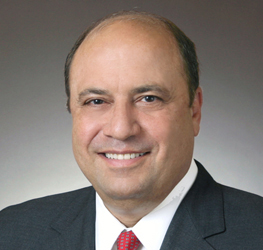Politics: Quinnipiac Poll Shows Governor Charlie Crist With Strong Lead in U.S. Senate Contest and CFO Alex Sink Slightly Ahead in Race for Governor
In surveys released on June 9 and 10, 2009, the Quinnipiac University poll found that Gov. Crist has a strong lead over his primary opponent in the 2010 U.S. Senate race and that the presumptive Democratic candidate for governor, state Chief Financial Officer Alex Sink, holds a slight lead over her Republican opponent, state Attorney General Bill McCollum.
In the race to succeed U.S. Senator Mel Martinez, the poll showed Gov. Crist leading his primary opponent, former state House Speaker Marco Rubio (R-West Miami) by 54 percent to 23 percent, with 21 percent undecided. On the Democratic side, the announced candidate, U.S. Rep. Kendrick Meek (D-17th Congressional District) had the support of 18 percent of the registered Democrats surveyed, followed by U.S. Rep. Corrine Brown (D-3rd Congressional District) with 12 percent, and U.S. Rep. Ron Klein (D-22nd Congressional District) with eight percent. Fifty-seven percent of registered Democrats in the survey were undecided. Rep. Brown has not officially entered the race, and Rep. Klein has endorsed Rep. Meek.
The poll did not include Republican former U.S. Sen. Bob Smith, who represented New Hampshire for two terms and now resides in Sarasota. Mr. Smith announced his candidacy for the Republican Senate nomination on June 8, 2009.
In the race for governor, where neither CFO Sink nor Attorney General McCollum expects serious primary opposition, the Democrat led the Republican by 38 percent to 34 percent, which is outside of the poll’s margin of error. Twenty-five percent were undecided.
Public approval of Gov. Crist’s job performance has decreased somewhat since earlier in the year but remains high, with 62 percent of survey respondents approving and 28 percent disapproving. The April 15, 2009 Quinnipiac poll showed the governor with an approval rating of 66 percent and a disapproval rating of 23 percent. Gov. Crist’s highest approval rating was 73 percent in July 2007, and his lowest approval rating was 59 percent in April 2008. Gov. Crist performed better in the poll than President Barack H. Obama, who scored a 58 percent approval rating, with 35 percent disapproving. Survey participants gave the state Legislature a 35-percent approval rating and a 45-percent disapproval rating.
The poll surveyed 1,245 Florida registered voters, including 486 Republicans and 477 Democrats, from June 2 – 7, 2009. The overall margin of error was 2.8 percent, and the margin of error for the Democrat-only and Republican-only questions was 4.5 percent.
Gaming: Seminole Tribe Is Unlikely to Support a Gaming Compact as Outlined in New State Legislation
On June 15, 2009, Gov. Crist signed SB 788, which sets out parameters for a gaming compact between the state and the Seminole Tribe of Florida. The potential agreement has, however, encountered some resistance from the Seminole Tribe. On June 11, 2009, the attorney for the tribe, Barry Richard, stated that the tribe was unlikely to enter into a gaming compact with the state under the terms specified in the legislation. Among other things, the bill allows the tribe to operate blackjack and other banked card games at its Hard Rock casinos in Broward and Hillsborough counties and at two other facilities in Broward County. The bill requires the tribe to provide the state at least $150 million a year in revenue sharing.
As described by Mr. Richard in a statement to a newspaper reporter, the key sticking points are potential future competition from other facilities and the $150-million-per-year payments. He said that the Legislature provided that gambling could be expanded anywhere in the state through home rule or a referendum, eliminating the exclusivity that, Mr. Richard said, is the basis of the federal Indian Gaming Regulatory Act. He also described the $150-million annual minimum payment to the state as being “out of whack economically.”
In response, House Select Committee on Indian Gaming Compact Review Chair Bill Galvano (R-Bradenton), expressed confidence that the federal government would approve a compact within the terms of SB 788. Rep. Galvano also stated that there was enough communication between legislators and the Seminole Tribe during the legislative session that he and key senators felt comfortable that $150 million per year “was a good number. With what they’re making and what they’re projected to make, that’s not a burden at all.”
Rep. Galvano also stated that while minor “policy tweaks” might be made, the Legislature would be unwilling to consider major structural changes. Mr. Richard responded by saying that if the Legislature and the tribe cannot come to an agreement, “the Legislature won’t get anything at all. That’s the worst thing for the State of Florida.”
Health Care: Gov. Crist Signs Two Bills on Access to Health Care
On June 10, 2009, Gov. Crist signed two bills intended to expand access to health care.
HB 675, the Alonzo Mourning Access to Health Care Act, provides that insurers that offer Medicare supplement coverage must make coverage available on a guaranteed-issue basis to an individual younger than age 65 who is eligible for Medicare by reason of disability or end-stage renal disease. Under federal law, only persons aged 65 or older are eligible for the coverage, but federal law does not preclude states from allowing the coverage for Medicare beneficiaries older than 65 years.
SB 1122 requires an insurer to make payments directly to a health care provider when the insured makes a written assignment of benefits, even if the health care provider does not have a contractual arrangement with the insurer. Prior to the enactment of SB 1122, health insurance policies could limit the ability of an insured to assign benefits for non-emergency services.
The bill was one of the more controversial health care bills of the 2009 legislative session. It was strongly supported by the Florida Medical Association and other health care groups as a means of improving access to health care. Health insurers opposed the bill because of concerns that it might reduce the incentives for providers to join preferred provider networks.
Politics: Sen. Gelber Is in, Rep. Galvano Is Out of the Attorney General’s Race
As expected by most observers, state Sen. Dan Gelber (D-Miami Beach) announced on June 9, 2009 that he was running in the 2010 Democratic primary for attorney general, setting up a contest with state Sen. Dave Aronberg (D-Greenacres). Press reports also indicate that former state Sen. Rod Smith (D-Alachua) may enter the race.
All three have prosecutorial experience. Sen. Gelber is a former assistant U.S. attorney, Sen. Aronberg is a former assistant state attorney, and Sen. Smith is a former state attorney.
On the Republican side, Rep. Bill Galvano (R-Bradenton), who had been widely mentioned as an attorney general candidate, announced on June 12, 2009 that he would instead run for a state senate seat that will become vacant in 2012. With Rep. Galvano out of the race, the likely Republican nominee is Lt. Gov. Jeff Kottkamp, who is expected to announce his candidacy soon. State Rep. Tom Grady (R-Naples) also has been mentioned as a potential candidate.
Public Policy News Alert is part of our ongoing commitment to providing up-to-the-minute information about pressing concerns or industry issues affecting our clients and our colleagues. If you have any questions about this alert or would like to discuss these topics further, please contact your Foley attorney or any of the following individuals:
|
Marnie George Michael P. Harrell Robert H. Hosay |
Jonathan P. Kilman Thomas J. Maida Leonard E. Schulte |

